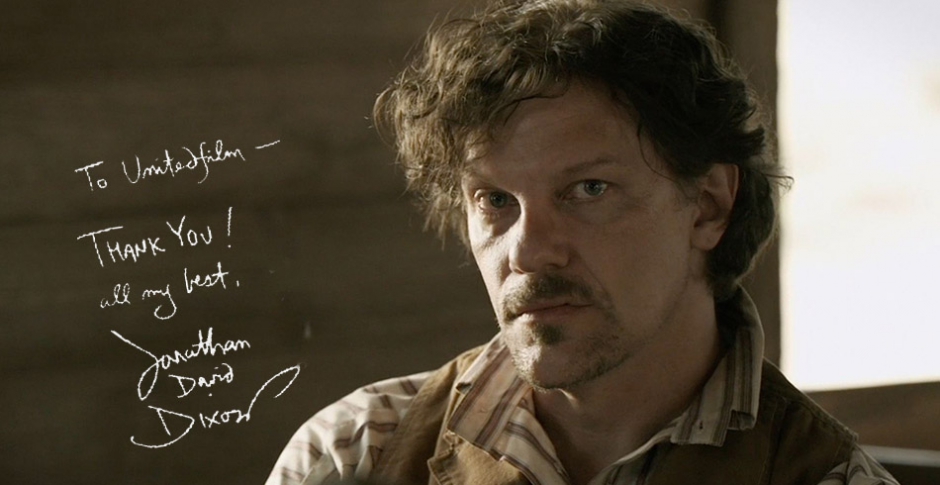Jonathan David Dixon: I take acting very seriously and I am constantly studying other actors
Written by Eva Csölleová, Vítek FormánekJonathan David Dixon is versatile actor working at Santa Fé. We got in touch via Hollywood actor David Frankham and after becoming penpals we found enough courage to ask Jonathan bunch of questions to suss out how hard job the acting really is.We appreciate Jonathan gave us so much time and effort and his answers are honest and deep.What was also interesting was the fact that his grandmother born in US in 1895 was full- blooded Bohemian and her parent were born in Bohemia.World is small.
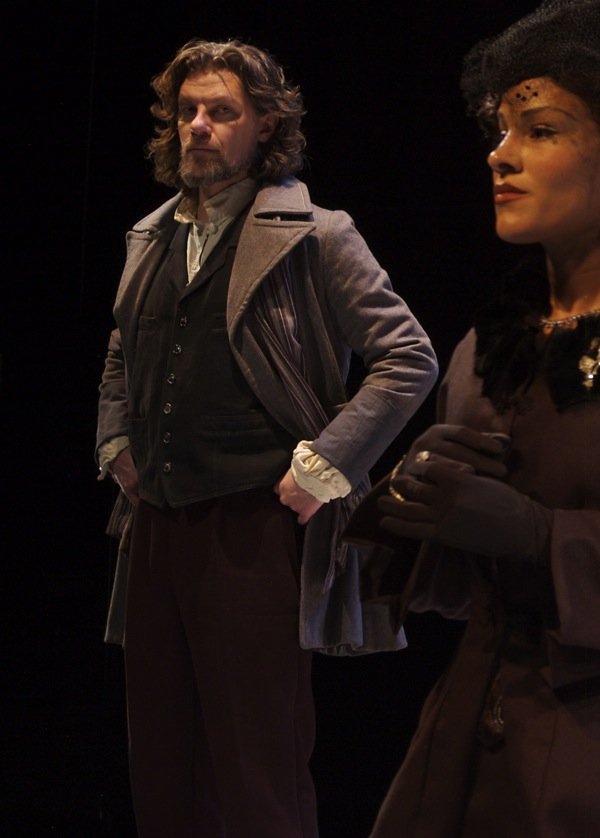
If one decides to try his/her luck and be an actor in USA, what are the next steps and how much does it cost (roughly). Does it differ from state to state and depends on „ name“ of the film school? What methods are you tought, Stanislavski one?
I don’t think there is any one “correct” way to be an actor. I think there are two very basic, important requirements: Having talent in the first place … and then simply doing it a lot, to practice and gain experience.
I honestly don’t know how much an acting school can help if a person doesn’t have the basic talent. If a person has talent, then acting schools can only develop and refine it … but some of the best actors I know just have the talent and have worked hard to get better through experience, with no school. I have also met actors who have gone to some famous (and probably expensive) acting schools, and I think those actors are not very good!
I am often embarrassed to admit that I have taken very few acting classes in schools … but that might make it sound like I don’t take it seriously. I take acting very seriously, probably more than many people who have gone to schools. I am constantly studying other actors -- the good ones, and even the not-very-good ones -- analyzing their technique and trying to see what works, what doesn’t work, and how I respond inside to what they are doing. I watch movies as much for the acting as for the stories.
For me it was always something I did just for myself, in colleges and community theaters. I didn’t expect ever to do it for money. I just did it to stay sane, and because I love the challenge of trying to learn and refine the technique of it. People have always told me I am a very good actor -- often one of the best they knew, saying, “Why aren’t you doing this on Broadway?” or “Why aren’t you doing this for money?” -- but I was hesitant to believe it myself. It didn’t seem like something I could really do as a profession, and it was only because there are so many films being done in the state of New Mexico, where I live, that it started to seem like something I really could do professionally.
Because I have mostly done plays in the theater, I did have to learn how to adjust to acting for cameras and microphones and film crews. I took several workshop classes related specifically to that, from very good teachers -- Deborah Dennison and Paul Geoffrey (Percival in the John Boorman movie Excalibur) -- and that was a very big help in feeling more confident. But I think after learning the basics, a lot of becoming better is just the experience of doing it a lot.
Once you graduate from film schools, how does it work than? Do you have to get an agent, or go from theatre to theatre or from agency to agency and get any kind of acting job?
I have not done professional work in theaters, but I imagine it might help to have an agent for that, at least in New York or Los Angeles. I have learned an agent is definitely needed for film work. Here in Santa Fe I kept hearing of friends getting film auditions and roles, and I was very envious because I had no idea how to break through that invisible wall. I wrote to two agents, sending my information, but didn’t hear anything back. Finally a friend of mine who worked for several weeks on the Johnny Depp The Lone Ranger recommended that I use his name with his agent. I went to see her -- Jody Black at the A&M Talent House -- she watched me do a scene … and then she accepted me.
Suddenly that opened the door to that world. She started sending me to auditions and suddenly I could get past the guards at the gates of the studios and filming locations. Suddenly I was getting the chance to do scenes with stars I knew from TV, and I was welcomed by them as a peer, even if I was just doing one scene with them.
Once you’re on the other side of the agent-barrier, then you get to know the casting directors, who are another door. The two main casting directors here in New Mexico seem to like me because they keep calling me in for lots of auditions. Most of the roles I don’t get -- which is typical, but always frustrating -- but they still keep calling me. That is a good sign because it means they like me and want to help me get jobs. And when I do get jobs, I try my best to be professional and nice. I think half of an acting career is talent. The other half is your reputation: being known as someone who can get the job done quickly and well, and being a nice and easy person to work with.
The biggest, most difficult challenge is getting people to see your work, so they know what you can really do. It takes time for the casting directors to get a sense of what you’re capable of. There are a lot of actors they know simply as a “type” of character, actors are pretty much the same in everything they do. I’m not a “type” actor and I do a lot of different kinds of characters -- I’ve often been called a “chameleon actor” -- so I think it’s harder for them to know what to do with me.
Is it truth that in US theatre actors are hired only for one play and mustn´t do anything else? In my country good actors, play in theatre in the evening, film in the morning and cram radio or dubbing in between and they are members of theatre for whole season.
I think it is mostly true. I haven’t done professional theater, but I try to avoid doing plays here now because, to be honest, they just don’t pay well, and I’m not in a position where I can afford to turn down the chance to be in a film or TV show that might pay really, really well. That is frustrating because I love doing plays, and they help you “keep the knives sharp.”
That became real for me when I almost lost a chance at a role on a major TV series „Killer Women“-- a character who might have re-appeared on later episodes -- because of a play I was doing. The director called me back after the first audition, but I couldn’t see him because of a performance of the play. I thought I had lost the part because of that, but he then cast me from the videotape, without meeting me in person. That almostnever happens! I got the role, doing two pages of dialogue with the star of the show, but it was pure luck that the days they needed me for the costume fitting, the script reading, and the filming all alternated with performances of the play. I was so nervous there would be a conflict that I actually felt sick for about a week. I got home from doing the play at 23.00 at night and seven hours later I was filming the scene. I wish they were more willing to work around each other here, like they do in the U.K. and your country.
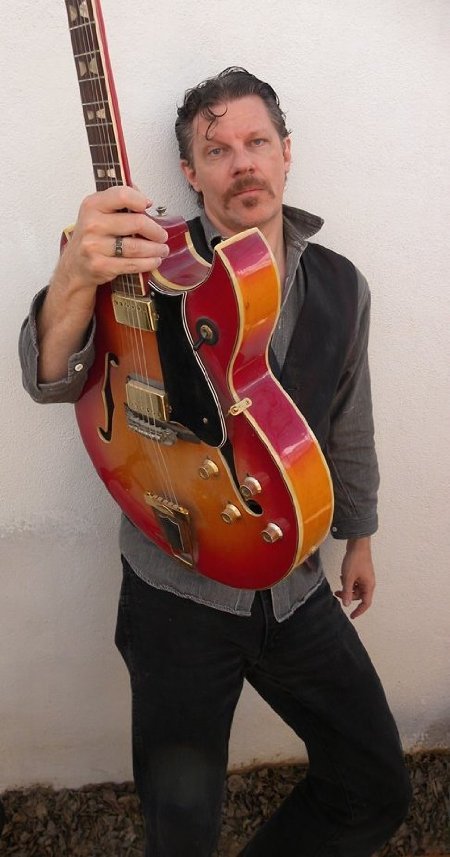
I never understood that say theatre rehearse one play, have premiere, next day some critic in papers give bad reviews and play ends within week. Work of dozens of people is gone. Why does it depend so much of stupid scribbers, viewers can´t make their own choise and decision?
I agree. The power critics are given is just stupid. It is especially frustrating when the critics are … well, dumb; when they miss the point of the play and then give a wrong impression and possibly turn away people who might enjoy it. Here is an example: I was in a play in which I played the Spanish poet Federico Garcia Lorca, and in the review the critic wrote, “the women characters don’t do much except try on hats and talk about holidays.” That made the play sound very shallow and insulting to women. He missed that while the women were trying on hats and talking about holidays they were giving the most important philosophical themes of the whole play!! Those scenes were the whole heart of it, and all he saw was hats!
Are you basicly forgotten man if you don´t have an agent? What does he do for you, try to get you any acting job anywhere. How much does he gets and is it only when you get contract? Can you say NO, if you think the act is too daft to your liking?
I know you can’t get into film auditions without an agent, so you’re pretty invisible without one. The casting directors send out descriptions of characters to the agents, and then the agents sends out all their actors who fit the description. When I get a part, my agent gets 10% of my payment. I try to audition for everything she sends me for, but there was one scene in a Western script that I found so offensive -- because of the violence -- that I told her I didn’t feel comfortable going to that one. She was understanding about that.
Most of the people got to LA to be close to Hollywood and competition is fierce. Wouldn’t it be easier way to be good actor in say Baltimore and after being acknowledged make agent to get me a job in film rather then work in restaurant and wait for call?
When my friend David Frankham, whom you know and have interviewed, was trying to be a film actor in the 1950’s and 1960’s, you had to be in L.A. It was all done there. And there weren’t as many people trying to be actors then. Now the film industry is more spread around the U.S.
I have been lucky. These days more is being done in other parts of the country, and I happen to live in a place where a lot of film and TV is now, so I have done better, and have gotten more opportunities here than I would if I lived in L.A. So many people go to L.A. to try being actors that the competition is much, much worse. I know people who have lived in L.A. and New York for years, and they still can’t get an agent or an audition.
In three years in New Mexico I have made more progress in an acting career than they have in 10-15 years. A Los Angeles casting director told me that while I might have 20 other actors to compete with here, in L.A. it might be 250 or 500. So, I feel like I am in a better place right now. Of course they are smaller parts here, but it is still possible to get something bigger. The girl who played Jennifer Lawrence’s little sister in The Hunger Games movies is from my city, Santa Fe, and she got that part through Jody, my agent.
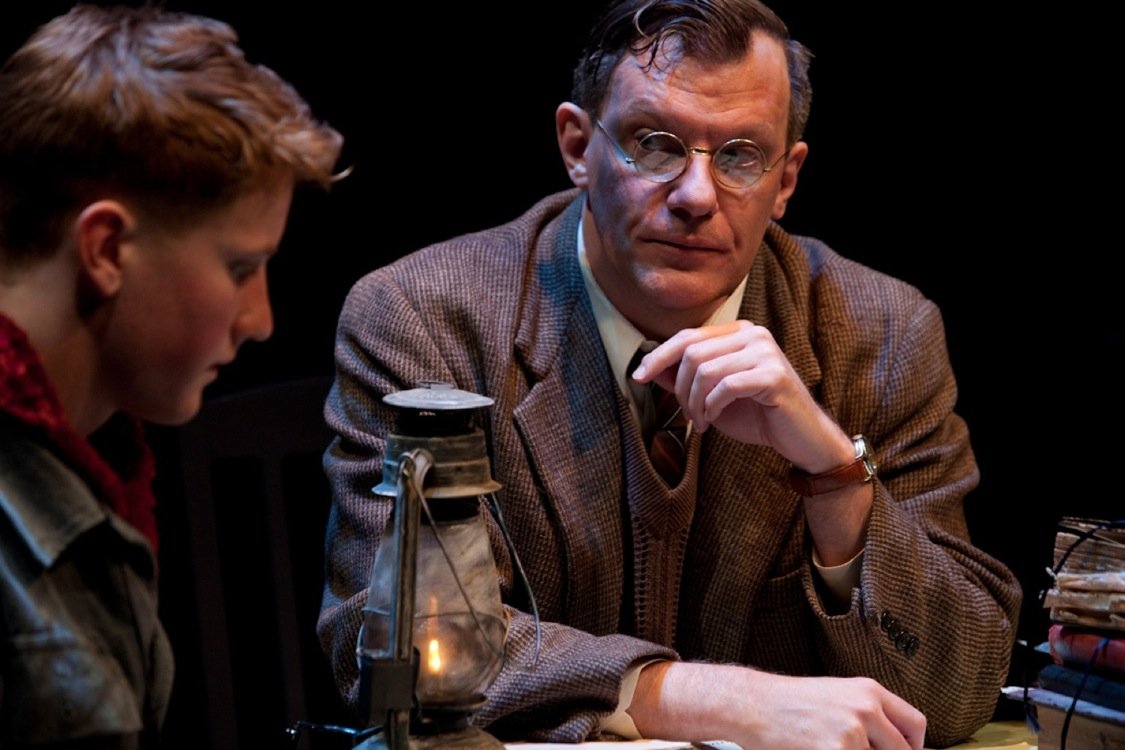
Imagine you want to make real art, no commercial trash. Do you have a chance to do it or all actors with independant ambitions must go through „ take- any- job“ stage before building some reputation and then having chance to say NO to stupid project?
I think for most actors you don’t get a chance to say no. When people ask how actors “choose their projects,” I say the same way plumbers or house-painters do: Someone says, “I will pay you to do this job,” and you say, “Okay.”
Derek Jacobi said “actors are beggars.” That’s really true; you’re dependent on other people to let you do it. That can be maddening -- even for a famous actor like Derek Jacobi. Everyone hopes to get to the point of a big, powerful career, but most actors are what David Frankham calls “working actors” or “jobbing actors.” You don’t get much choice. You take any job because you need to pay rent and bills.
Even in my three years of doing film auditions and work in New Mexico I’ve seen how you can lose a lot of the feeling of “glamour” that movies have for most people. It’s not glamourous at all being a professional actor. Now when I see someone I know on TV I don’t think, “She’s in a movie!!” I think, “Oh, good for her. She got a job and some money.”
Do you have a chance to break into film without going via TV and theatre stages or you must start in theatre to get experience and reviews which lead you to TV call which makes you known and it takes you to film?
Again, I don’t think there is one “correct” way to do it. A lot of film and TV actors have never done any stage work, and some stage actors don’t do well in film because they haven’t been able to learn the technique of acting in films. The demands are very different. I think acting is basically all the same on the inside, but there are very different ways of letting it out.
Here in the U.S. film people respected theater acting much more in the past, but I don’t think they do very much now. In the 1950’s David Frankham’s agent used to see plays every night, looking for new actors. Casting directors used to go to plays all the time, and they would send to New York for stage actors to be on TV shows.
I am told that in the U.K. casting directors still respect theater, but in the U.S. it now seems very difficult to get casting directors to see plays. Many film people look down on the theater and have a negative impression of “stage acting,” which they think is “shallow” and “too big.” (I think what they are really thinking of is bad acting, because good stage actors know how to be subtle and real too.) I wish it wasn’t that way. I think a good actor can and should do all the different kinds of acting. Anything you can do in one area can only help in another area.
How are you paid? Is it given by trade union so you have certain guaranteed wages or you are basicly in hands of directors, producers etc, who can take advantage of you being at the wrong end?
After I had done two TV shows I was required to join the Screen Actors Guild (SAG). It is good to get into the union because getting work through them guarantees a certain wage -- which is a really, really good wage -- and they protect you from being taking advantage of. The trick is to get those jobs often enough. Union jobs also pay “residual” payments to the actor. That means that every time my episode ofLongmire is shown, or a DVD is sold, I get a bit of money. (At first it was a lot of money!) That is very nice. Last summer I was in a movie called War On Everyone, by the Irish writer/director John Michael McDonagh (who did a very good, popular film called Calvary in 2014), and that will be premiering in Berlin in February). It has already been picked up for distribution by Sony, so I am hoping to get nice residual payments for that!
Before you are in the union you can get non-union acting jobs, but those usually pay little and there is no protection. You don’t get any residuals. Before I joined SAG I was in two episodes of a TV series called Gunslingers, about Old West villains, which became very popular in the U.S. and Europe. They repeat it a lot on the American Heroes Channel here. It was a lot of fun to do, they were very nice people, and it was a very good learning experience for me -- and I got to play “cowboy” and feel like John Wayne -- but because it was not a union show I have not received any money from it after the first payment, even though it is the most popular series that channel has ever done.
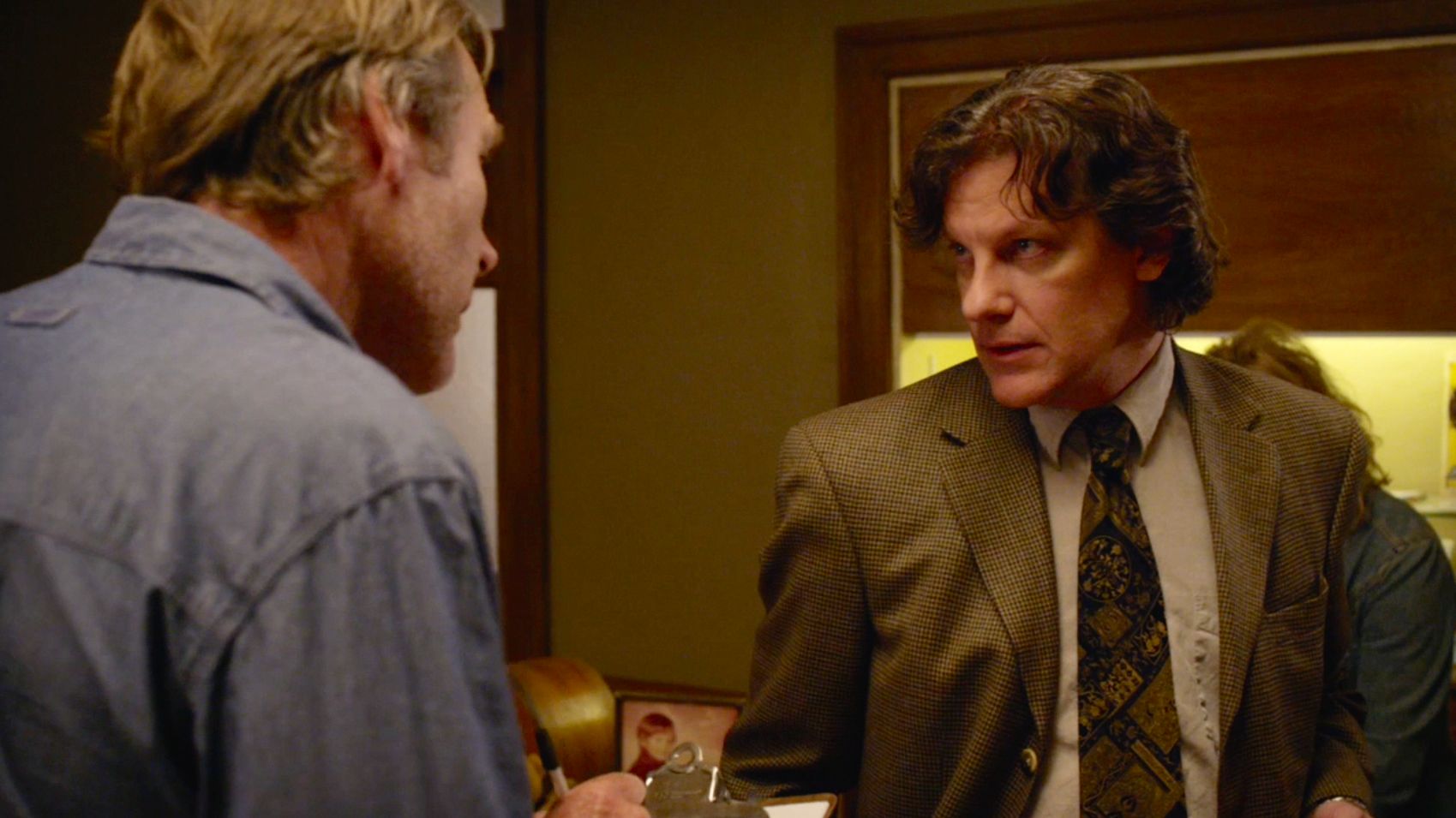
Why do you think so many people want to be actors. Is it blind view of fame and fortune or they really are exhibitionist who want to show what they are capable of doing?
I read once that when Alfred Molina teaches acting classes, the first thing he says is: “Do you want to be an actor or do you want to be rich and famous?” -- because those are two different goals. A lot of people think that being an actor makes you rich and famous. Most actors, even the ones who make a living at it, are never rich and famous.
Many of the best actors I know are not exhibitionistic, but are pretty quiet people, even shy. I think they do it because they love doing it. For me, it’s just something I’m naturally good at. I take pride in that, and in wanting to develop my ability … like a good cabinet-maker or carpenter would. I would do even if I never had a chance of making any money from it.
When I first met my British filmmaker friend Peter Kershaw, he asked me why I like acting. After thinking a moment I said, “It’s good for a quiet, reserved person because the better you are at hiding, the more praise and attention you get.” For me it’s like meditation, like Zen archery. It’s not about showing off, but getting out of your own way and letting IT do the acting (whatever IT is). When it happens, it is a magical feeling. But when it doesn’t happen there is still pride in the craftsmanship of being able to do a good job even if it’s not feeling magical.
Also, I do it as a way of facing fears. I hate being controlled by fear, so it is a way to put myself in a scary situation and have to succeed and make it work … because if I don’t, I will make a fool of myself and let a lot of people down. Afterward I’m proud of myself when I do it.
How does your day –as an actor-look like.Do you sit home and wait for phone to ring or you are active and try to“ offer“ yourselves? How does it look on auditions, you go personally to agency or send him DVD with your profile and it is very alienated attitude?
There is a lot of waiting. I now understand what they mean about actors “waiting for the phone to ring.” There are some things I have control over, though, so I try to do those -- putting myself forward and trying to get people to look at what I can do. That is not a natural part of my personality -- self-promotion -- but it has to be done, and if I don’t do it, no one will.
That can include taping short scenes of myself to put on “demo reels” -- scenes of me doing different characters, with different looks and voices, to show what I can do. Instead of saying to casting people, “Give me a job and I will show you what I can do,” I think it is smarter to say, “Here is what I can do” … and hope they will see it and give me a job.
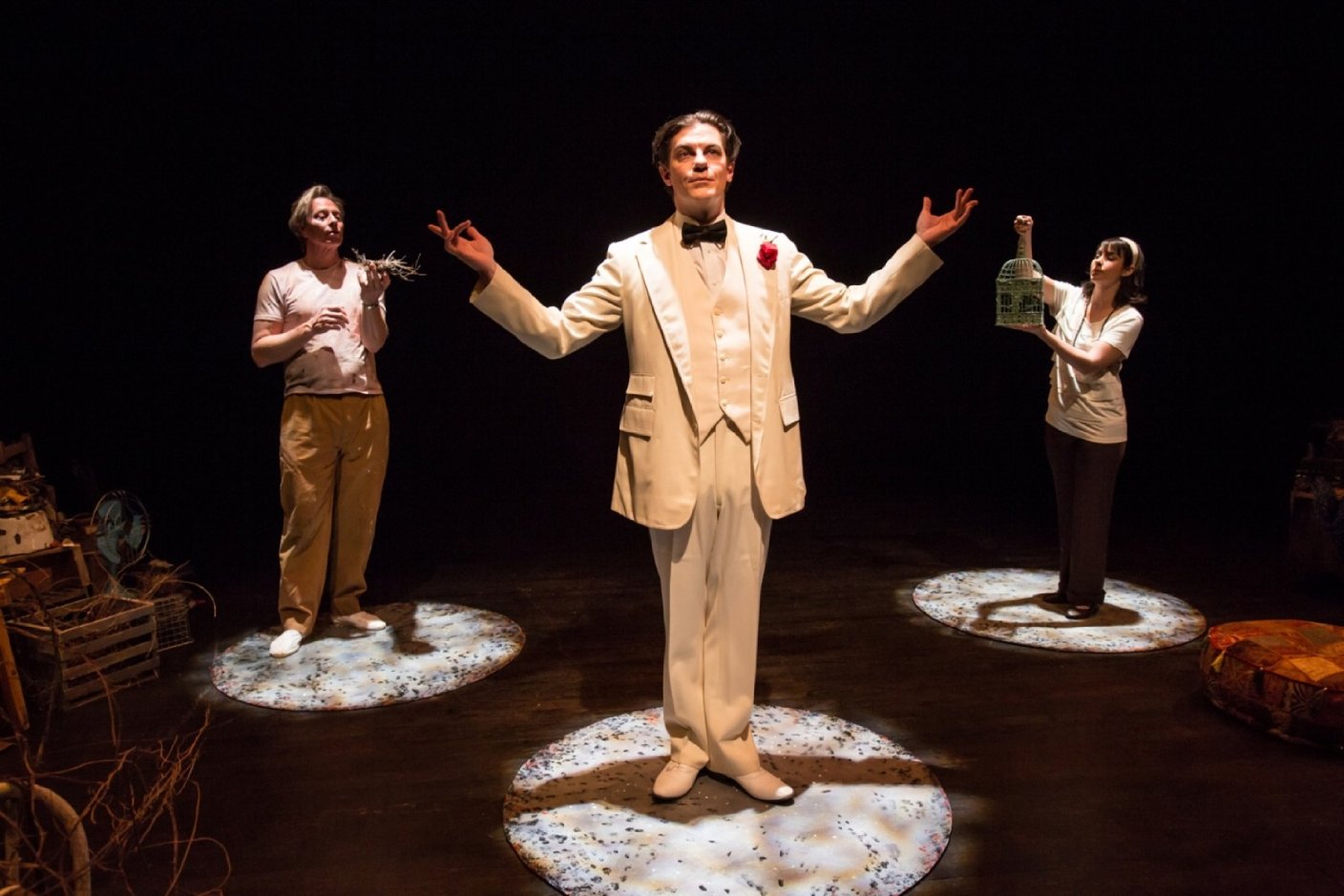
Then there is the problem of trying to get people to look at those demo reels. I have put them on my IMDb page. (IMDb: Jonathan David Dixon) I put a lot of care into my IMDb page. Everyone knows about IMDb, so it is an easy place to refer people so they can learn about my work. That has been helpful on occasion: Some directors have looked at my reels there and then put me at the top of their list, or asked me to audition for a better part than the one they were thinking of originally for me.
Along with my resume, I also have many photos of me there, in different plays, TV shows, and movies -- to give people an idea of how I can look as different characters. Some directors and casting people are not very imaginative. They don’t know what they want, or what you might be right for, until they see it. I have also started a Facebook page, which for me is more professionally-oriented than for just friends, and soon I hope to have my own website too, to have even more control over how I present myself.
I hear older actors, like David Frankham, say it was much nicer in the old days because the business was more personal. You had more chance to know casting directors and directors as real people. Now it is very much through computers and videos. That has benefits too, of course, but often you feel very isolated. And now, even though it is easier to video yourself and put yourself out with the computer, at the same time that means there are many more people doing the same thing, so it can be hard to stand out and get attention.
There is still nothing like meeting people face to face to feel comfortable and familiar with them, like friends. And that makes you less nervous, so you perform better. That’s why I like going to auditions and seeing the same people again and again. Even if I don’t think I’m right for a role, I still think of it as a “social visit,” just to say hello and chat a bit. It’s the importance of “networking.” It is true that who you know can help a lot (although of course you also have to have the talent to back that up, and also be the kind of person people want to help).
You never know which contact might lead to something. For example, some of my best opportunities have come from doing the “wrong” thing. Here in New Mexico they tell actors not to do theater plays if you want to focus on a film career. Yet, a friend of mine whom I’ve done several plays with, a writer and director, recently got a funding deal for three independent films -- for millions of dollars over the next few years. And because she knows me -- and trusts and likes me -- I am now looking at the possibility of months of work and very big parts in three very interesting films. If I had done the “right” thing -- not done her plays -- I would not be in that happy position.
And that points to an important thing all actors hope for: LUCK. As you know from reading David Frankham’s autobiography, Which One Was David?, it starts by saying if he hadn’t pulled a snake out of a river in Malaya when he was in the British Army in 1947, he might never have had a successful acting career in Hollywood years later. If you look back at the events that came from that snake, that is completely true. And if David had arrived at a certain hotel in Hollywood five minutes later than he did in 1955, he would have missed seeing Alec Guinness -- whom he had interviewed in England a few months earlier -- and Alec Guinness would not have been able to help David meet the agent who directed David to the agent David had for the next thirty years. It was pure luck and good fortune. You can’t control that.
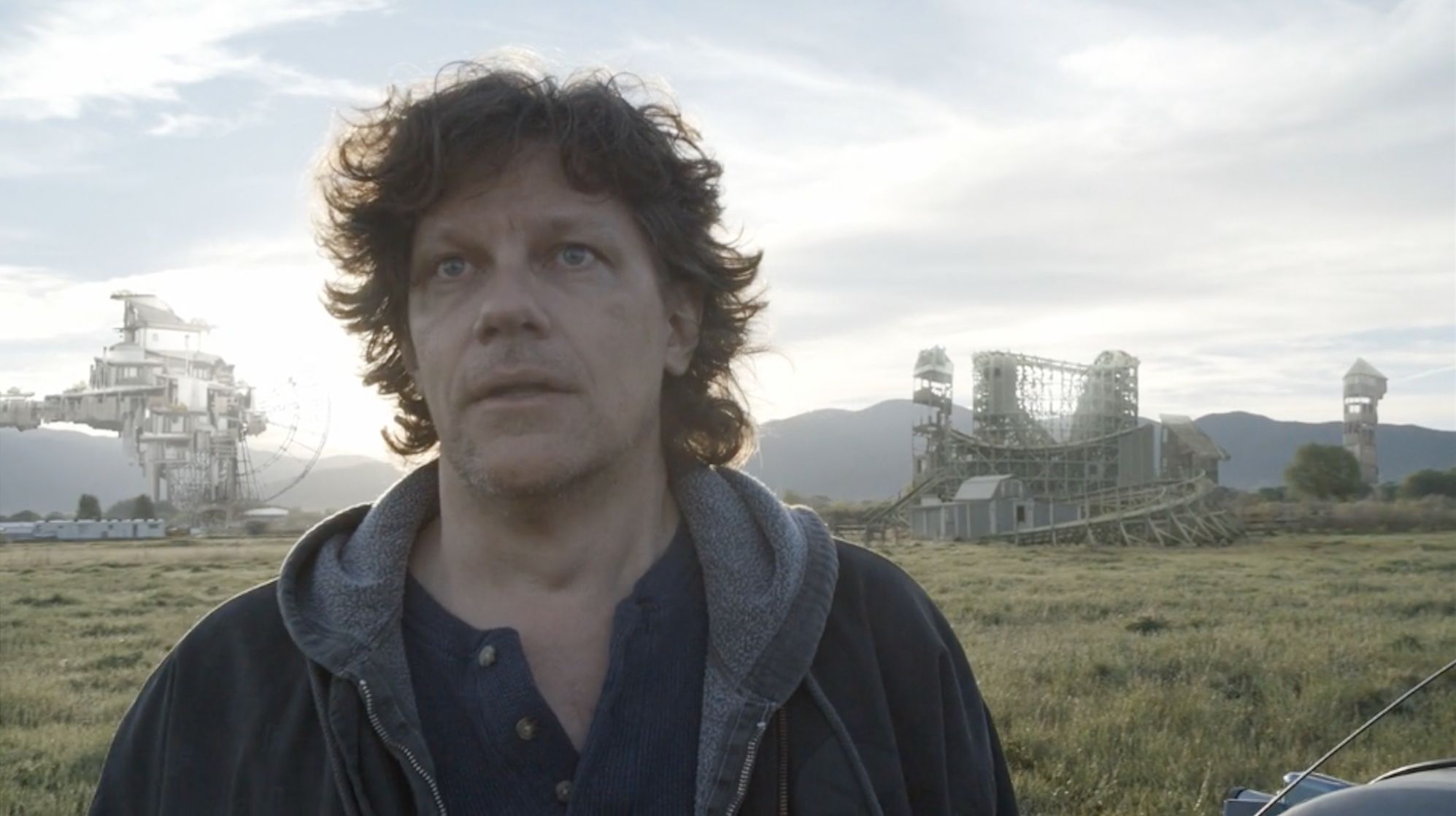
If you want to be independent actor or film maker, what do you need and how do you do it. You work with different people or just change the attitude towards money?
I think it would have to be a big change in attitude toward money … because you probably won’t get much. I think for many actors they would like a balance: doing the big jobs and getting the good money, but also knowing the independent people and doing things that might mean more too. I read a story where Marlon Brando once looked through a list of his films and he kept saying, “Art … money … money … art … art … money … art …” I have no problem with actors doing things for money, any more than I have a problem with cabinet-makers doing things for money. They have to pay rent and buy food like anyone else.
Do you take acting as a job or as artistic expression of your inner feelings which satisfy you very much?
As I said before, I would be doing it in any way I could, even if there was no chance of being paid for it … but it is nice to be paid as a kind of validation that people value the talent. Again, I guess the ideal situation would be to have a balance between the “job” part and the artistic expression part. That would be the best of both worlds.
Thank you. Eva Csölleová and Vítek Formánek
Thank you for asking me for an interview! Maybe a Czech filmmaker will read this and need an American actor for a role, and they will hire me and let me visit the Czech Republic again! (I was there in 1992 and I loved it.) Who knows?


